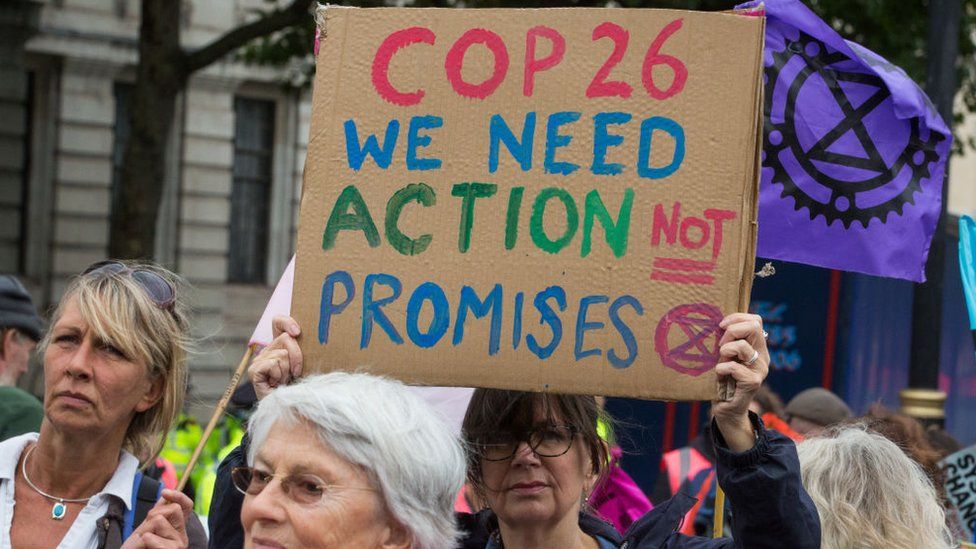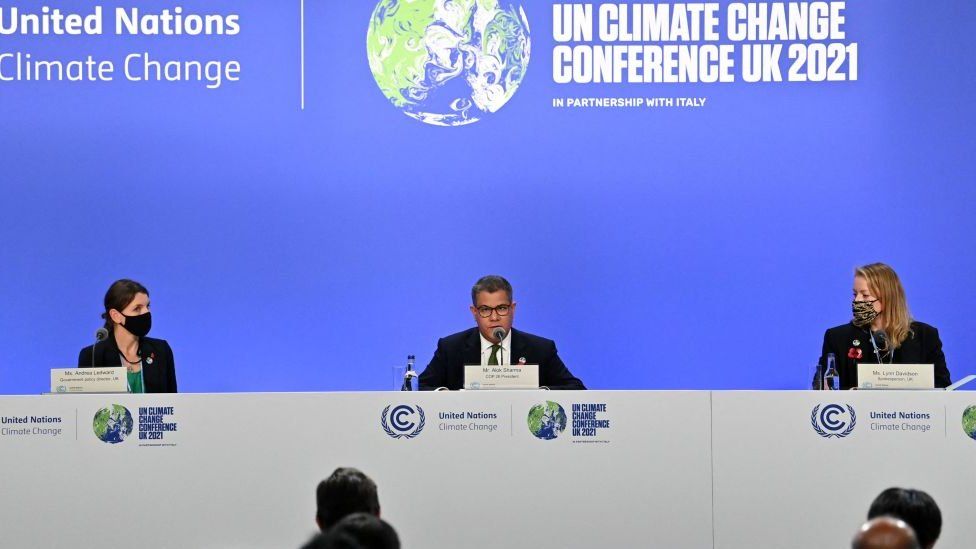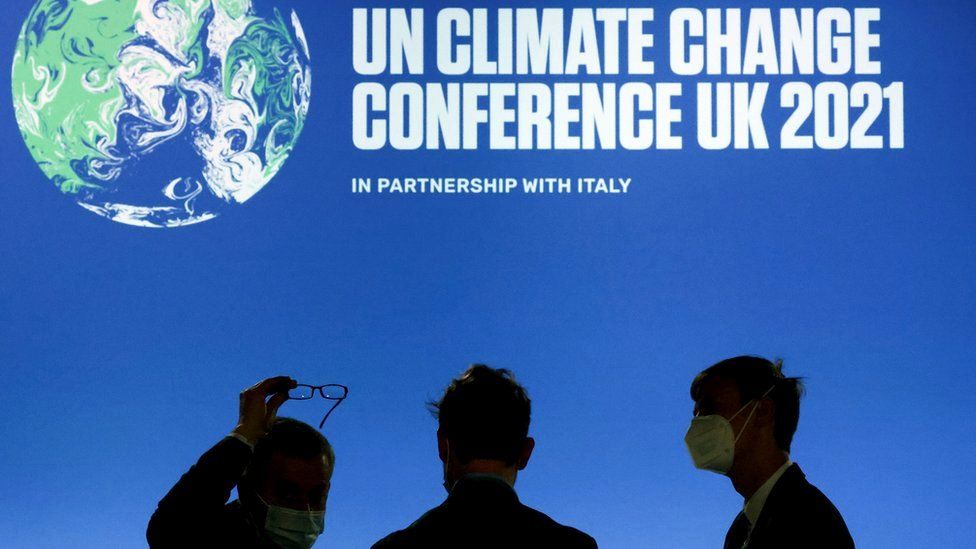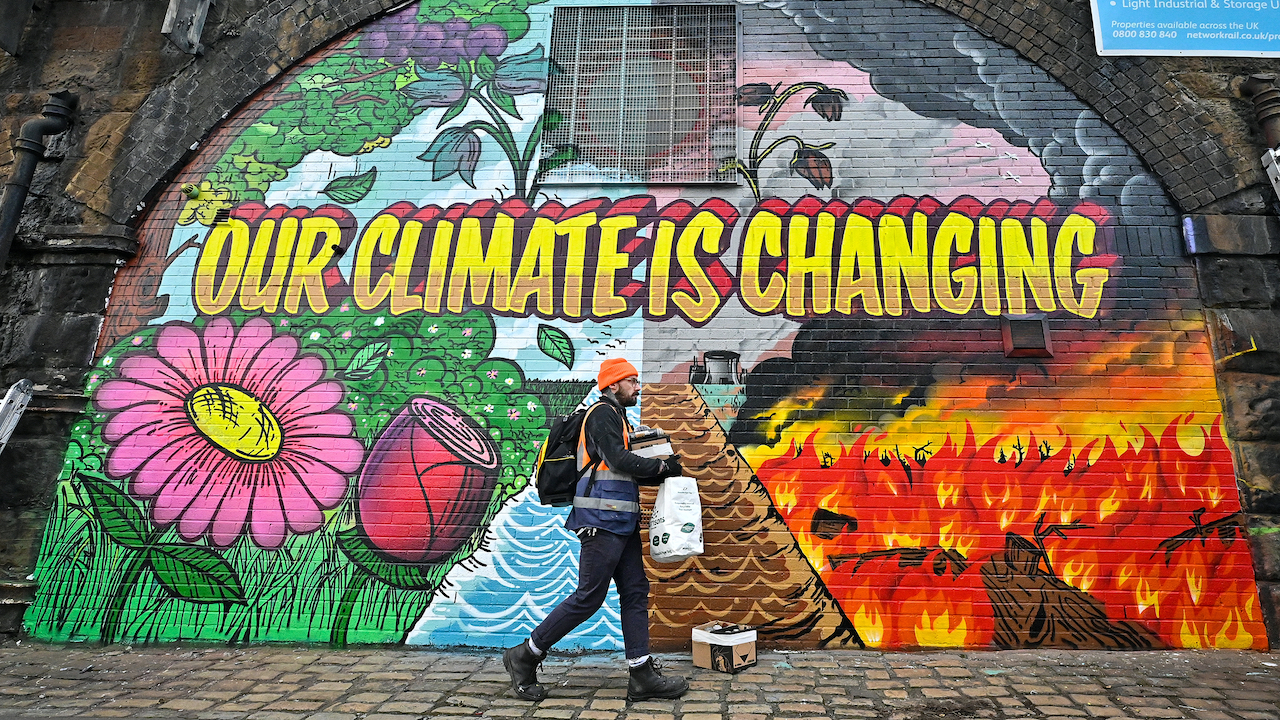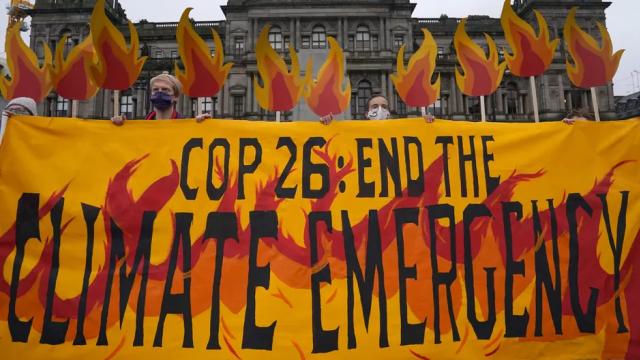
Following a summer of raging wildfires in the Mediterranean, devastating flash flooding on three continents, and a deadly drought in Africa, the United Nations COP26 has brought 120 world leaders together, rubbing shoulders in Glasgow as they discuss what to do – if anything – about the climate crisis.
With some delegates arriving on “ridiculous” domestic flights and paying up to £888 a night for supposedly budget accommodation, the summit designed to accelerate action on climate change has been renamed by some as the ‘Conference of Polluters’ or ‘Conference of Profiteers.’
COP1, held in 1995 in Berlin, served as the first formal meeting of the Conference of Parties (COP) to assess progress in dealing with climate change. The initial global meeting dedicated solely to climate change voiced concerns about nations’ ability to take serious action addressing the climate, and created the first joint measures for an international response.
Twenty-six years and 25 COPs later, and carbon dioxide emissions are 14 billion tonnes a year higher than they were then, causing some to beg the question: is COP26 anything more than a charade?
Important action has already been agreed upon at COP26, including cutting methane emissions, ending and reversing deforestation, and mapping a framework for the journey to Net Zero emissions. But for many thinkers, the successful reckoning with climate change requires the end of capitalism and corporate interest.
Thinking in these terms was Earth Island Journal, which writes about COP26:
“Too often, we members of frontline communities convene at these meetings, raise our voices and demands, yet find ourselves unwitting spectators to the parade of dominating capitalists who are more concerned with maintaining the status quo and corporate interests than saving the planet.”
Oil industry continues to revel in profit
Connecting capitalism to the root cause of the climate crisis is neither new nor revolutionary.
Oil companies have known for more than half a century that the pollution created by burning fossil fuels poses a stark threat to human health. In the late 1960s, internal documents compiled by Shell warned that air pollution “may, in extreme situations, be deleterious to health.” By 1980, the Imperial College was alerting about “birth defects among industry worker offspring.”
Yet despite well-ingrained knowledge about the devastating climatic effects of oil production and climate change, the oil sector continues to revel in profit. Since 1990, when the impact of fossil fuel extraction on the planet was well known in the industry and among politicians, oil giants including Shell, BP, Chevron and Exxon have made profits totalling nearly $2 trillion.
Critics argue the findings demonstrate how several corporations have created extraordinary profit based on policies that are known to drive the climate crisis.
As Mel Evans, senior climate campaigner at Greenpeace UK, asked: “Why did [oil companies] continue to promote those products and dispute science they knew to be correct? Why are they still spending hundreds of billions of dollars on making the problem worse, drilling for new oil and gas we can’t possibly afford to burn?
“These figures provide the answer. Money is like rocket fuel: burn through enough of it and you can escape the pull of the Earth. But there’s nowhere else to go.”
‘Capitalocene’
The link between capitalism as a major contributor to climate change is so synonymous that it has even warranted its own term. The phrase ‘capitalocene’ was coined by Jason Moore, an environmental historian and sociologist at Binghamton University. Moore says the use of the term ‘Anthropocene’ to define the current climate shifts blame from corporations and capitalist structures to the average consumer.
But as the Carbon Majors Report in 2017 revealed, a mere 100 companies were responsible for 71 percent of worldwide industrial greenhouse gas emissions since 1988.
Urging consumers to take one less flight a year or to swap plastic bags for paper ones in the quest for a climate crisis solution – changes that retain a pro-market philosophy – don’t really make the grade.
So, what’s the solution?
Labour’s Green New Deal, maybe?
The UK Labour Party’s Green New Deal programme comes close to departing from the usual pro-market antics to combat climate change – which, as we can see by rising carbon dioxide emissions, are having little success.
The demands of the Green New Deal are largely progressive, centred on “expanding public ownership,” seeing a “nationalisation of energy, water and railways,” creating “well paid and unionised jobs,” and executing “green housing standards.”
While such measures may be more advantageous to typical pro-market solutions that pin the blame on the consumer rather than the monetary-racketeering corporation, a legitimate question is whether they go far enough?
Falling short of a complete nationalisation of markets like oil, gas and renewables, some believe Labour’s policy is not as radical as it may sound.
Socialist.Net notes that there is nothing fundamentally new in the UK’s Green New Deal. Its name is drawn from President Franklin Roosevelt’s New Deal set of economic and social reforms designed to rescue US capitalism in the 1930s. Furthermore, it limits nationalisation to certain sectors and runs in cohesion with capitalism.
To truly combat the climate crisis, voices like theirs say, solutions need to be more radical – such as the nationalisation of oil companies, banks, the steel sector, and other profit-churning industries.
As long as such industries remain in private hands and are not under public ownership, they will continue to prioritise profit at the expense of the climate.
As governments face extreme pressure to act now, policies and agreements are being thrashed out in Glasgow. However, like the shortcoming of Labour’s New Green Deal, the notion that the current economic system can be modified or reformed to make it compatible with overcoming the climate crisis is perhaps the greatest obstacle to stopping climate change.
In her 2014 book This Changes Everything: Capitalism vs. The Climate, the popular critic of capitalism, Naomi Klein, said she rejects highly efficient solutions such as climate-friendly nuclear energy because she is not interested in solutions within the framework of capitalism.
Instead, Klein hoped for “a new kind of climate movement to take up the fight against so called free trade.”
Echoing such sentiment is Labour MP Rebecca Long-Bailey, who is renowned for her socialist principles. According to Long-Bailey, ‘tinkering round the edges’ won’t cut it at COP26.
“Our broken financial system created this crisis and if we do not rebuild it from the ground up, we will not only have no quality of life, we’ll have no life on earth at all,” says the MP.

